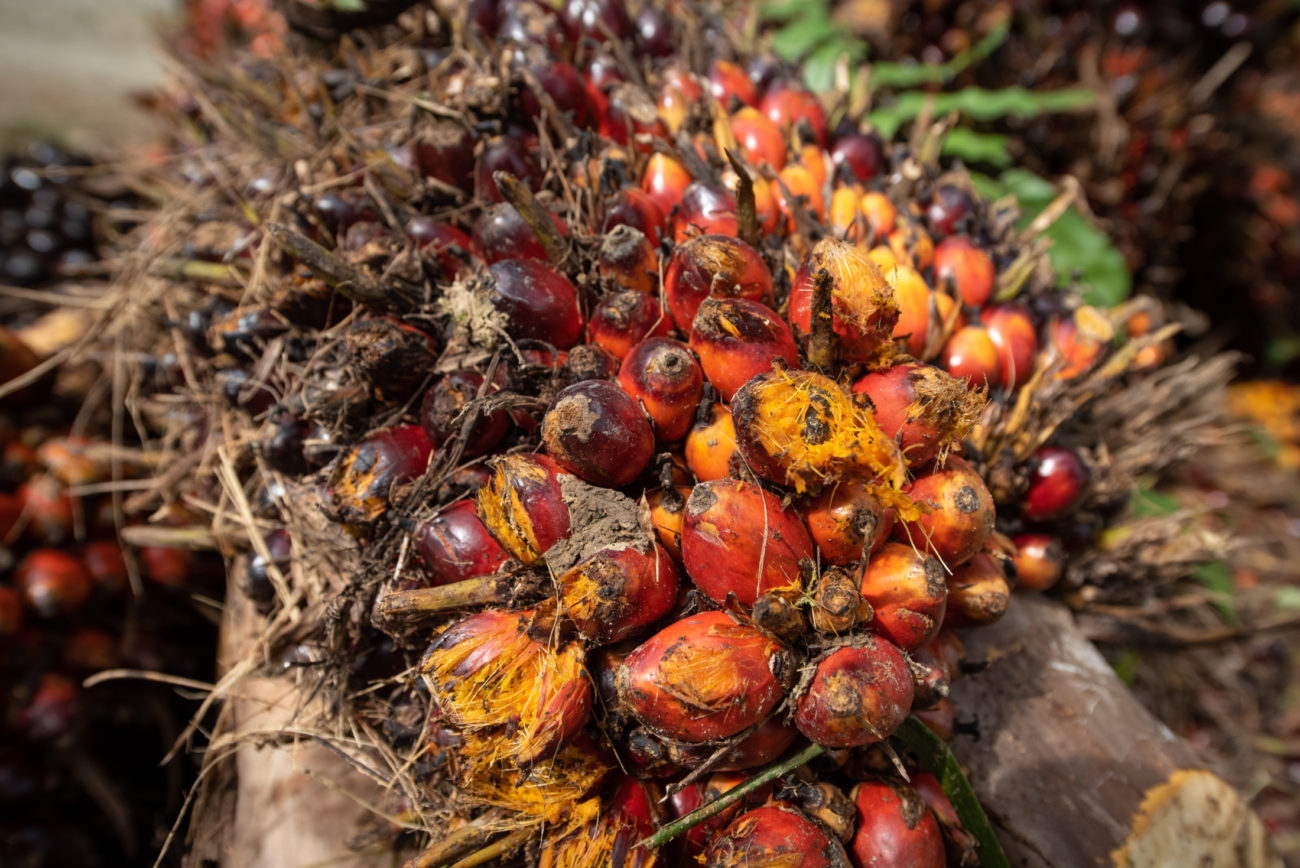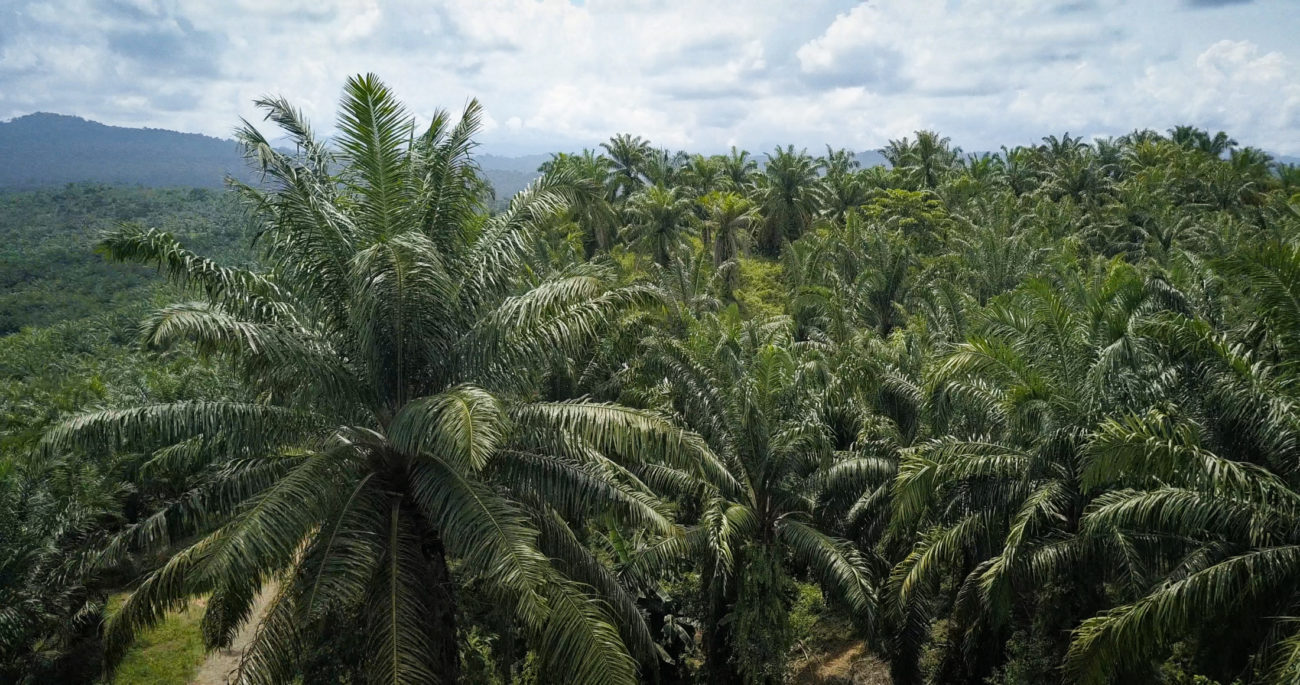Thoughts on the palm oil industry from conservation and business experts.
Early this week, our Fundraising and Communications Officer, Lucy, attended a Business Breakfast focusing on sustainable palm oil. Hosted by the Future Economy Network, the event brought together people from the business sector, NGOs and researchers to discuss the sustainable palm oil industry, especially regarding what we should all be doing to help the industry reach its sustainability goals. Here’s what the expert speakers had to say.
Katie Major, Conservation Psychologist and Campaigns Manager at Bristol Zoological Society
Katie pointed out that while 77% of imported palm oil in the UK is sustainable, this figure excludes finished goods and palm oil imported ingredients. Palm oil demand is still increasing, and lots of global markets are increasing the demand for unsustainable palm oil. It’s important, therefore, that we do a few things to increase our consumption of sustainable palm oil, thus increasing the demand for it too.
- We need more positive public stories. The media focus on headlines like ‘How to Avoid Palm Oil’ can make manufacturers react by boycotting palm oil. This is damaging to the sustainable palm oil industry and won’t help anything in the long-term. The RSPO isn’t perfect at the moment, but it’s getting better and better, so we need media stories which are honest, but also positive and empowering.
- We need a clear, consistent message which tells consumers that they should be supporting sustainable palm oil. At the moment, messaging around palm oil is very mixed and very confusing, so people don’t know what to do. It is tricky to get the messaging right, but when you do, you can have an amazing impact. An example of this is the Seven Worlds, One Planet Asia episode, where Sir David Attenborough gave a very clear statement about supporting sustainable palm oil. These kinds of communications can have a very strong impact.
- We need to put positive pressure on companies. We should be reaching out to them if they’re not using sustainable palm oil and offering to help them make the switch. A lot of companies have commitments regarding sustainable palm oil, but they haven’t seen them through yet, so positive pressure can help them stick to what they’ve committed to do. We also need to support companies who are already using sustainable palm oil – buy their products, praise them and shout loudly about the work they’re doing.
- Companies who are using sustainable palm oil really need to talk about it, because the majority of them are not. In addition to this, as soon as there’s any bad publicity about palm oil, we need companies who use sustainable palm oil to come forward and say ‘you know what, we use sustainable palm oil, and these are the reasons that we’re proud to use it’. It is unacceptable, now, to have a palm oil policy hidden somewhere on your website that nobody is ever going to read.

Oil palm fruits. Photo by Andrew Walmsley.
Hazel Culley, Senior Sustainability Manager – Foods, Marks and Spencer
Hazel explained why, as a business, they can’t simply take palm oil out of all their products. She said there’s a common misconception that palm oil is used because it’s cheap, but that that’s not the case. There are very important qualities to palm oil which food manufacturers think about, but consumers don’t necessarily know about. It’s extremely versatile and has a high melting point – because it’s not going to turn easily into liquid, it can be used for all sorts of things. It also hasn’t got much taste, so it doesn’t interfere with the flavour of foods.
If a product developer approaches Hazel and says ‘I want to take palm oil out of this product and use coconut oil or shea butter instead’, it’s Hazel’s responsibility to look at the ethical and sustainability considerations around all the fats and oils that could be used before deciding what developers can do. There’s no simple answer when it comes to swapping palm oil for another oil or fat; more often than not, there isn’t an option which is more sustainable. In fact, most types of oils and fats don’t have standards to adhere to in the same way that palm oil does, so for a brand like Marks and Spencer to start using coconut oil across the board, instead of palm oil, they could struggle to find sustainable sources.
As it stands, all the palm oil used in Marks and Spencer products is RSPO certified. It’s currently a combination of mass balance and more segregated palm oil, but by the end of 2020, almost 100% will be segregated. Hazel’s analogy for mass balance is that it’s a bit like buying green energy – you’re not necessarily getting green energy into your home, but you are paying a premium that will help green energy to be produced.
“RSPO is not perfect, but it is getting a lot better. It was strengthened last year, and it’s become a lot more rigorous. The board of governors at RSPO has been a lot more stringent, so I feel like, as a business, we have a lot more confidence in the RSPO than we have done in the past.”
At Marks and Spencer, the sustainability team can feel confident that all the palm oil they sell is coming from respnsible sources, but they are just one brand in a huge industry, and some of the suppliers they buy responsible palm oil from are still buying non-certified palm oil for their other customers, because if they’re not asked for sustainable palm oil, they won’t provide it. This is a big issue in many industries: at the raw material and manufacturing level, the excuse is ‘if we’re not asked for it, we won’t do it’. Of course, it’s not acceptable that people only do the right thing when customers ask them to, so Marks and Spencer and other UK retailers have set up the Palm Oil Transparency Coalition. Once a year,this coalition undertakes in-depth, complex analysis of what manufacturers and importers are doing in terms of importing sustainable palm oil. They’re trying to push big palm oil traders in the right direction, and it’s starting to bring about real change. One of the traders they work with recently published their whole mill list, enabling brands to know exactly who they’re buying from, and empowering them to cut people out of their supplier list if they’re not satisfied with their sustainability efforts.

An oil palm plantation. Photo by Andrew Walmsley.
What you can do
As you can see from the insights above, there is agreement among experts that the RSPO isn’t perfect. However, it is improving, and the standards applied to palm oil are far more robust than those applied to most other oils and fats (many of which have no standards or regulating bodies at all). Consumer demand still drives most of the positive change in the palm oil industry, and though this isn’t necessarily right, we can at least use this knowledge to keep driving the industry to do better. We at SOS are doing the following, and we encourage you to join in:
- Using apps and sustainable palm oil shopping lists to help us support the brands doing things right
- Contacting our favourite brands to find out what their palm oil policy is (if it’s not clear on their website or packaging), and letting them know that it’s easier than they might think to switch to sustainable palm oil if they haven’t already
- Turning Oxford into a Sustainable Palm Oil City. If you live in Oxford(shire), you can help by supporting our sustainable palm oil champions – we’ll be announcing the first one soon. If you live elsewhere, there’s a strong chance a local NGO or zoo is already planning to do the same where you are – it’s worth contacting them to ask
- Spreading the word that sustainable palm oil exists and that consumers should support it. There’s a lot of worry and misinformation out there, so if people you know are concerned about what to do, please direct them to resources that will help (on our website and many others).

